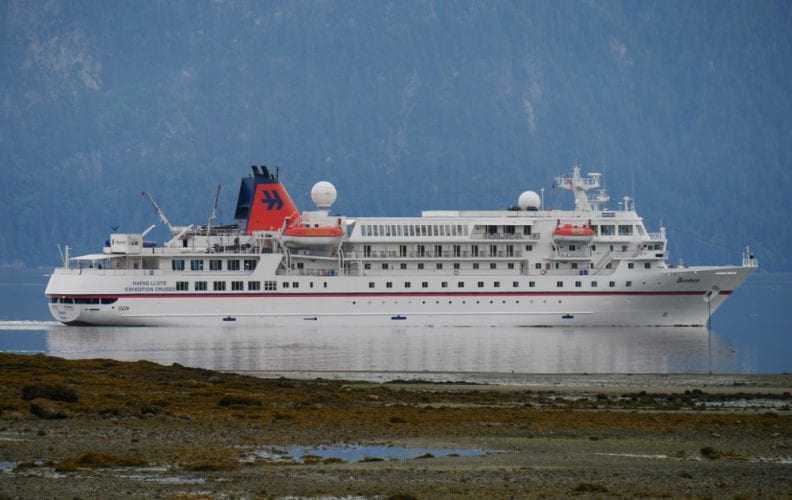
Gov. Mike Dunleavy’s proposal to overhaul environmental regulation of cruise ships has passed a key Senate committee. But the bill would also permanently repeal the Ocean Ranger program passed by voters in 2006.
That would eliminate the independent observer program on cruise ships. It would be replaced with direct oversight by the Alaska Department of Environmental Conservation and rely on self-reporting of wastewater discharges permitted by the state.
Juneau Democratic Sen. Jesse Kiehl proposed a compromise, a scaled back program with Ocean Rangers on one of every five ships.
“I think there were some strong arguments made by the administration that just as we don’t have a police officer on every single corner in town, they have built out capacity so that they don’t strictly need an Ocean Ranger on every single cruise voyage in Alaska,” Kiehl said. “But deleting them entirely I think we’ve heard from strong public comment is not what Alaskans are looking for in this self-funded program.”
A fee charged to cruise companies paid for the program for licensed marine engineers onboard the majority of voyages by the larger ships. However Governor Dunleavy has vetoed money for it and it last operated during the 2019 season.
Written public testimony has been overwhelmingly in support of keeping or even expanding independent oversight by the marine engineers. The Petersburg borough passed a resolution asking to reinstate funding. Dozens of Alaskan fishermen and processors have signed onto a letter highlighting their importance.
Senate president Peter Micciche, a Soldotna Republican, supported the state’s plan to end the Ocean Rangers and opposed Kiehl’s amendment during a Wednesday, April 20 hearing of the Senate Resources Committee.
“The Ocean Ranger program was a great program,” Micciche said. “I think what it did was demonstrated that we have a compliance program that works. I think they were engaged and I know that it’s popular but frankly I think that what’s in this bill has the potential to deliver much greater performance than the previous program.”
State regulators made a pitch for the governor’s plan. The DEC’s Water Division Director Randy Bates told lawmakers his state agency is expanding and hiring staff to review discharge records and take samples when vessels are in Alaska waters.
“We’re going to be on vessels 100 percent of the time, 100 percent of all vessels early in the season, those first three or four weeks,” Bates said. “We’re going to follow up with scheduled and unscheduled inspections as necessary and we’re going to do, for those vessels, large vessels, discharging in state waters, we will do a ride along.”
The state agency projects 41 large cruise ships and 18 small cruise ships to operate in Alaska this year bringing an estimated 1.6 million passengers to the state.
Kiehl’s amendment to keep Ocean Rangers deadlocked at 3-3 and failed before the bill ultimately advanced.
At first the committee didn’t have the votes to move the bill out of committee but a late arrival helped it pass. The vote was 4-3 with Micciche, Natasha Von Imhof of Anchorage, committee chair Josh Revak of Anchorage and Click Bishop of Fairbanks, who showed up late, voting yes. No votes were Scott Kawasaki of Fairbanks, Jesse Kiehl of Juneau and Gary Stevens of Kodiak.
The legislation would also establish a new fund to pay for sewage treatment plant upgrades for Alaska communities and eliminate citizens’ right to sue companies for pollution.
Next stop for the bill is the Senate Finance committee. But its ultimately trajectory is less clear in the House. That’s because the companion bill has not advanced with time running short for this legislative session.
With no Ocean Rangers for a second year running, the DEC says it plans to inspect cruise ships during the season in port and while underway. And that’s both large and small ships, one change from the Ocean Rangers program, which only focused on ships with more than 250 people.











